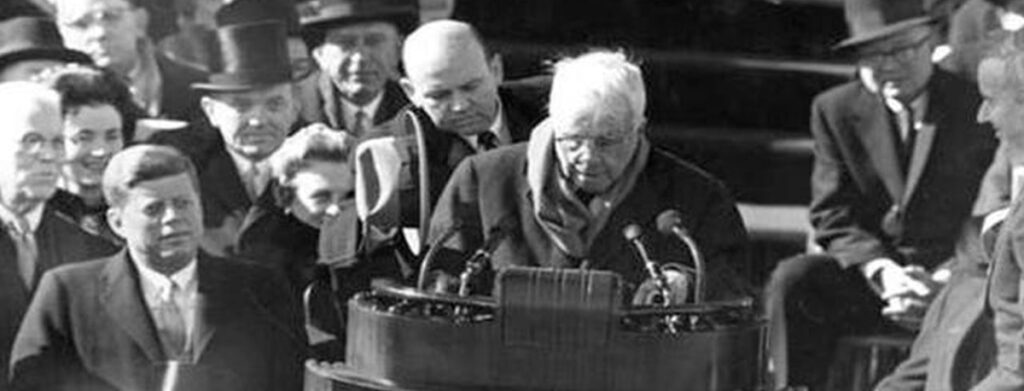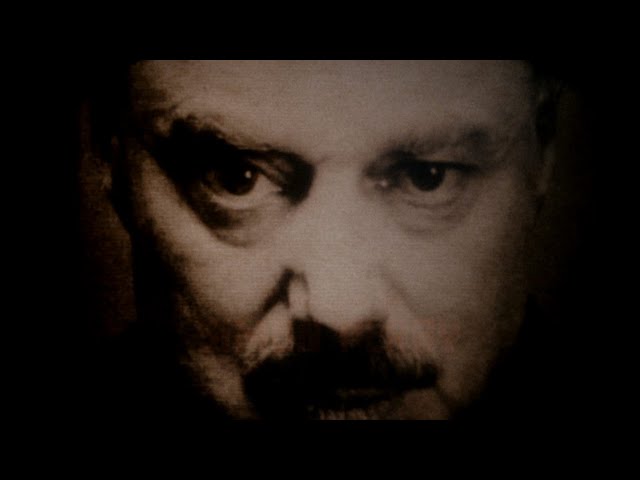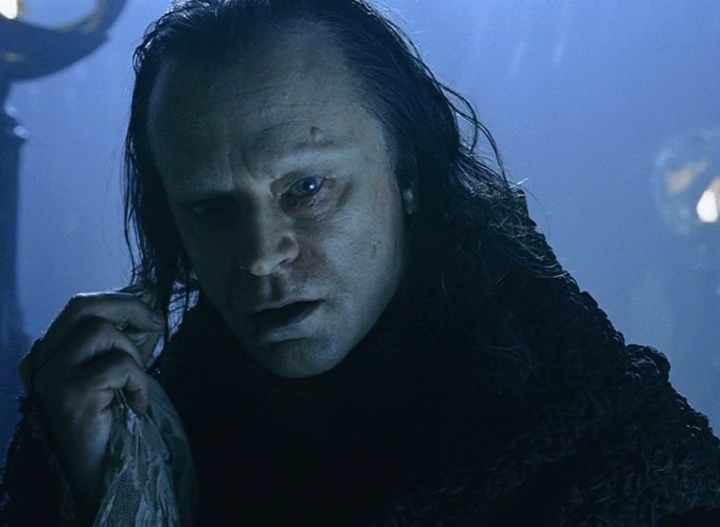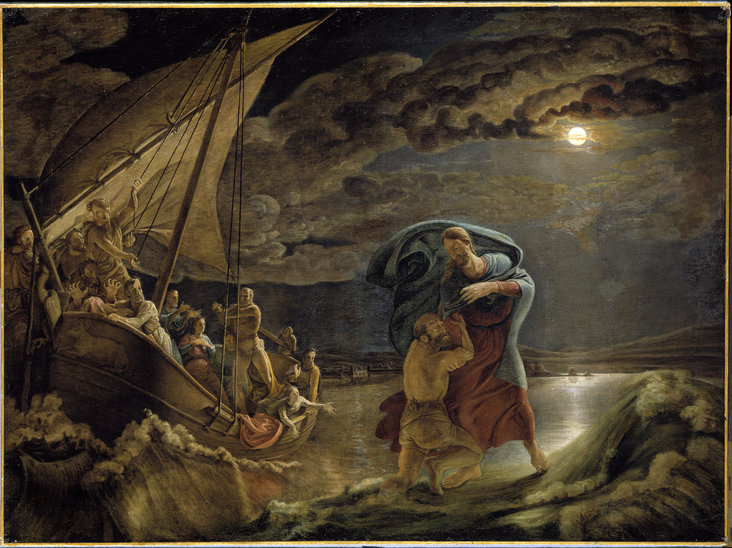Note: If you wish to receive, via e-mail, (1) my weekly newsletter or (2) daily copies of these posts, notify me at rrbates1951@gmail.com and indicate which you would like. I promise not to share your e-mail address with anyone. To unsubscribe, send me a follow-up email.
Sunday
I share here a talk I am giving today to our church’s Adult Forum on “Creating in God’s Image.” The topic is the relationship of God and creativity.
In her best-selling writer’s guide The Artist’s Way, Julia Cameron maps out the connection she sees between God and creativity. Her ten basic principles, she says, are the bedrock on which “creative recovery and discovery can be built.” As the former alcoholic, drug addict, and agnostic sees it, connecting with God not only helped her get her life back in order but also proved to be a boon to her writing.
I begin today’s talk with Cameron’s articulation because it provides a perspective on how artists throughout history have drawn on spiritual energies in their work. My focus will be on the act of requesting divine aid, whether through prayer, ritual ceremony, meditation, or “invoking the muse,” as Homer does in the opening lines of both The Iliad and The Odyssey.
First, however, here are Cameron’s Ten Principles on how creativity has a spiritual dimension:
1. Creativity is the natural order of life. Life is energy: pure creative energy.
2. There is an underlying, in-dwelling creative force infusing all of life — including ourselves.
3. When we open ourselves to our creativity, we open ourselves to the creator’s creativity within us and our lives.
4. We are, ourselves, creations. And we, in turn, are meant to continue creativity by being creative ourselves.
5. Creativity is God’s gift to us. Using our creativity is our gift back to God.
6. The refusal to be creative is self-will and is counter to our true nature.
7. When we open ourselves to exploring our creativity, we open ourselves to God: good orderly direction.
8. As we open our creative channel to the creator, many gentle but powerful changes are to be expected.
9. It is safe to open ourselves up to greater and greater creativity.
10. Our creative dreams and yearnings come from a divine source. As we move toward our dreams, we move toward our divinity.
In choosing “Creating in God’s Image” as our Sunday Forum theme this year, our Christian Formation Committee riffed off the passage in Genesis as to how humankind was created in God’s image. As Cameron describes it, in creating we reenact the creation, fulfilling our essential purpose and, in so doing, moving toward divinity.
On the other hand, Cameron says that we experience blockage when we let our egos get in the way. We don’t allow ourselves to be conduits for God’s creativity but instead—to borrow a line from Pride and Prejudice—allow self to intrude. We don’t, as the saying is, “let go, let God.
Of course, there’s also work involved in the artistic process—it’s not just about letting go—and in a moment I’ll move into Plato’s exploration over whether art is more an artisanal craft or a divine madness. Some, reminding us of the effort required, talk about art being “10% inspiration, 90% perspiration.” But focus on that 10% for a moment. The word “inspiration” comes from the Latin “inspiratus,” meaning “breathe into.” It is as though some other worldly force is breathing into the artist, with the work of art the result.
The Romantic poets, especially Percy Bysshe Shelley, believed that a creative force blows through the universe. Shelley may have proclaimed himself an atheist while a student at Oxford but, if so, he was a particularly spiritual atheist. In “Ode to the West Wind,” he finds a metaphor for divine Imagination.
The west wind, which seems wild, untameable, and at times destructive, is also a source for new life. In the final two sections of the poem, Shelley talks of himself being carried by the west wind as though he were a dead leaf. He also imagines himself as a “swift cloud,” as a wave “pant[ing] beneath thy power,” and as an Aeolian or wind harp, with the wind blowing through him just as it blows through a forest:
IV
If I were a dead leaf thou mightest bear;
If I were a swift cloud to fly with thee;
A wave to pant beneath thy power, and share
The impulse of thy strength, only less free
Than thou, O uncontrollable! If even
I were as in my boyhood, and could be
The comrade of thy wanderings over Heaven,
As then, when to outstrip thy skiey speed
Scarce seem’d a vision; I would ne’er have striven
As thus with thee in prayer in my sore need
Oh, lift me as a wave, a leaf, a cloud!
I fall upon the thorns of life! I bleed!
A heavy weight of hours has chain’d and bow’d
One too like thee: tameless, and swift, and proud.
V
Make me thy lyre, even as the forest is:
What if my leaves are falling like its own!
The tumult of thy mighty harmonies
Will take from both a deep, autumnal tone,
Sweet though in sadness. Be thou, Spirit fierce,
My spirit! Be thou me, impetuous one!
Drive my dead thoughts over the universe
Like wither’d leaves to quicken a new birth!
And, by the incantation of this verse,
Scatter, as from an unextinguish’d hearth
Ashes and sparks, my words among mankind!
Be through my lips to unawaken’d earth
The trumpet of a prophecy! O Wind,
If Winter comes, can Spring be far behind?
Why a dead leaf? Shelley here may be talking of how poets can find themselves cut off from the creative spirit. I recall Sparky Edgin, who taught us the poem in my junior English class at Sewanee Military Academy, pointing out that the leaf could also be the leaf or page of a book. Shelley at this point in the poem is lamenting how his adult sensibility and the cares of the world are keeping him from being as open to creativity as he was when he was a boy, “when to outstrip thy skiey speed/ Scarce seem’d a vision.” Instead, he now falls upon the “thorns of life” and bleeds.
This is a common Romantic theme, found most notably in such Wordsworth poems as Tintern Abbey and Intimations of Immortality. “Shades of the prison-house begin to close/ Upon the growing boy,” Wordsworth writes in the latter.. But Shelley then holds out a vision of hope. Perhaps the spirit is not altogether dead. Imagine those withered leaves, he says, as sparks from a fire that has not altogether gone out. And if they are still alive, maybe they will awaken the cold earth with new fire. Propelled by this divine spirit, Shelley’s words will function as a prophecy: spring will come.
To be sure, the west wind is destructive as well as creative, bringing wintry blasts as well as carrying seeds. Earlier in the poem Shelley calls it “destroyer and preserver.” For Shelley as for Lord Byron, nature isn’t only Wordsworth’s daffodils but also storms and volcanoes, what the Romantics called “the dark sublime.”
I mention this dark side of the creating spirit—the idea that this divine force can be destructive as well as life affirming—because that’s how Plato saw it. You’ve perhaps heard about how, in his ideal “republic,” he bans poets for being a disorderly influence. He wants philosopher kings, not poets, running things.
Nevertheless, Plato has some interesting thoughts about the divine source of poetic inspiration. Some of his most interesting thoughts appear in The Ion, where Socrates cross-examines a rhapsode famous for his dramatic recitations of Homer.
Ion has the ability to sway audiences with emotional renderings of (to mention instances cited by Socrates) the wrenching scene where Andromache, Hecuba and Priam mourn the death of I Hector and the heart-stopping moment when Odysseus reveals himself to the suitors. Imagine being in the audience as the greatest actor of your day recites the following passage:
You yellow dogs, you thought I’d never make it
home from the land of Troy. You took my house to plunder,
twisted my maids to serve your beds. You dared
bid for my wife while I was still alive.
Contempt was all you had for the gods who rule wide heaven,
contempt for what men say of you hereafter.
Your last hour has come. You die in blood.
I imagine one could have heard a pin drop.
Stretching the audience to the emotional max is no problem for Ion—he revels in it as much as the spectators do—but for Plato it’s a problem. After all, if you’re wound up, that means you are not, to use his words, in your “right mind.” If Ion were applying crafted artifice in his cause, it would be okay because reason would be involved. But Plato fears that he has been inspired.
Inspired people, as Plato sees it, get swept up in their emotions. It’s a very different perspective than we find in Shelley and the other Romantics. While not opposed to Reason, they are promoting feeling to counteract what they saw as the 18th century’s overemphasis on rationality. In defense of Plato’s anxieties about emotional appeals, we must remember that he saw strong emotions propel the Athenian assembly into ruinous wars, not to mention the execution of his beloved teacher. But the main reason why I bring up The Ion is because of Plato’s exploration of divine inspiration.
To describe it, he uses two analogies, one involving a magnet, the other ecstatic dance. Here’s the first:
The gift which you possess of speaking excellently about Homer is not an art, but, as I was just saying, an inspiration; there is a divinity moving you, like that contained in the stone which Euripides calls a magnet, but which is commonly known as the stone of Heraclea. This stone not only attracts iron rings, but also imparts to them a similar power of attracting other rings; and sometimes you may see a number of pieces of iron and rings suspended from one another so as to form quite a long chain: and all of them derive their power of suspension from the original stone. In like manner the Muse first of all inspires men herself; and from these inspired persons a chain of other persons is suspended, who take the inspiration.
In other words, the artist serves as a channel from the heavenly muse to the audience.
Perhaps finding magnets not dynamic enough, however, Socrates turns to another analogy, this one involving possession and Bacchanalian frenzy:
For all good poets, epic as well as lyric, compose their beautiful poems not by art, but because they are inspired and possessed. And as the Corybantian revelers when they dance are not in their right mind, so the lyric poets are not in their right mind when they are composing their beautiful strains: but when falling under the power of music and meter they are inspired and possessed; like Bacchic maidens who draw milk and honey from the rivers when they are under the influence of Dionysus but not when they are in their right mind.
While Plato prefers that Apollo rather than Dionysus influence his art—in The Republic he praises Apollo’s lyre while banning Pan’s pipes—he sees divinity at work in both kinds of art. Humans are creating in the god’s image in both instances. It’s just that, in a polytheistic society, there are different gods one can draw inspiration from. In Christianity people sometimes need to resort to the religion’s unofficial second god, Satan, to explain the supernatural source for art they don’t like. Recall that, in the 1950s and 1960s, Christians like Billy Graham regarded rock and roll as “the devil’s music.”
It makes sense, given the stupendous challenge of a 24-book oral epic , that Homer would feel the need for divine assistance. “Anger be now your song, immortal one,” he says as he invokes the muse Calliope in The Iliad while in The Odyssey (to quote from Emily Wilson’s wonderful translation) he calls out,
Tell me about a complicated man.
Muse, tell me how he wandered and was lost…
Milton, seeking to write a Christian epic that would rival the epics of his pagan predecessors, found his own muse in the Holy Spirit. This was the spirit that spoke to Moses on the mountain, to Jesus during his baptism, and to the disciples at Pentecost:
Of Man’s first disobedience, and the fruit
Of that forbidden tree whose mortal taste
Brought death into the World, and all our woe,
With loss of Eden, till one greater Man
Restore us, and regain the blissful seat,
Sing, Heavenly Muse…
Milton has a heavy ask of this Heavenly Muse:
Illumine, what is low raise and support;
That, to the height of this great argument,
I may assert Eternal Providence,
And justify the ways of God to men.
In other words, this blind, imprisoned poet is asking the Holy Spirit to enlighten him as to why God allows bad things to happen to good people.
Milton’s muse provides seemingly supernatural assistance. In Book IX, conflating Urania, the muse of astronomy, with the Holy Spirit, Milton reports that his “celestial patroness” shows up nightly. And in fact, each morning he would come to breakfast with dozens of lines in his head to pass on to his scribes. In his words, his patroness
dictates to me slumb’ring, or inspires
Easy my unpremeditated Verse…
To conclude, I turn to two other request for divine aid I’ve come across my reading. Alice Walker addresses a spirit as she opens The Color Purple, although her faith tradition is unclear:
To the Spirit:
Without whose assistance
Neither this book
Nor I
Would have been Written.
As Walker sees it, the spirit is not only working through her but has created her. She is a result of the creative process that, in turn, is using her to continue creating.
Native American novelist Leslie Marmon Silko says something similar in the opening of Ceremony, where she invokes figures from Laguna Pueblo traditions:
Ts’its’tsi’nako, Thought Woman,
is sitting in her room
and whatever she thinks about
appears.
She thought of her sisters,
Nau’ts’ity’I and I’tcts’ity’I,
and together they created the Universe
this world
and the four worlds below.
Thought-Woman, the spider,
named things and
as she named them
they appeared.
She is sitting in her room
thinking of a story now
I’m telling you the story
she is thinking.
For the Laguna Pueblo, storytelling is a ceremony that links them with their mythical deities. This goes not only for their traditional stories but also for new stories arising out of the tradition. Silko makes a point throughout her novel that, in a changing environment, the stories too must evolve. That being said, however, she still grounds herself in the core traditions of her people. Thought-Woman is her muse.
It’s noteworthy that this muse is also depicted as a spider—a creature that spins its creation out of the core of its being—since the West African storytelling god Anansi is also a spider. Originating in Ghana but then brought to the Caribbean by slaves, Anansi is a trickster figure with a complicated relationship with the creator. In some stories, Anansi sounds like Prometheus, only instead of bringing down fire from the sky gods, he brings down stories. In any event, like all muse figures, he works as an intermediary between the sacred and the profane. To invoke Anansi or to tell an Anansi story is to immerse oneself in a culture sustaining process.
And here’s one last example. Lucille Clifton sometimes sees it as a mixed blessing that she is in thrall to spiritual energies. In her poem “the light that came to lucille clifton,” she talks about the moment in her life when she came to see herself not just as a mother and a wife but as a poet. In her recounting, she had been resisting that knowing but the light proved to be too insistent:
the light that came to lucille clifton
came in a shift of knowing
when even her fondest
sureties faded away. it was the summer
she understood that she had not understood
and was not mistress even
of her own off eye. then
the man escaped throwing away his tie and
the children grew legs and started walking and
she could see the peril of an
unexamined life.
she closed her eyes, afraid to look for her
authenticity
but the light insists on itself in the world;
a voice from the nondead past started talking,
she closed her ears and it spelled out in her hand
“you might as well answer the door, my child,
the truth is furiously knocking.”
Art, has countless people have noted over the centuries, is a strange mixture of the material and the otherworldly. It’s building blocks are things of this world—words, sounds, human movement, wood, stone, clay, etc.—but something spiritual enters in. Perhaps, this being a Christian forum, we can think of it as a little piece of God’s kingdom come to earth.
In my talk today I’ve given instances of artists acknowledging art’s spiritual dimension and sometimes overtly courting it. I’d be very interested in our question-and-answer period of hearing about your own experiences with artistic transcendence. If you are an artist, how do you channel spirit into your work? If you are a consumer of art, what works have lifted you out of yourself and into a different space? Where have you experienced creating in God’s image?










